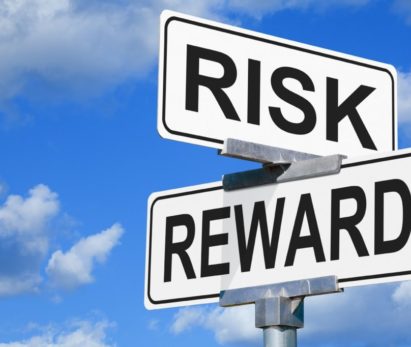Procrastination: the Businessman’s Worst Enemy
Procrastination. A time-sucking monster lurking beneath the water. The very antithesis of productivity, if you will. These days procrastination is a substantial obstacle professionals face in achieving their goals, particularly young professionals. Data shows that more than three-quarters of college students consider themselves to be procrastinators, and estimates figure that 20 percent of adults can be considered “chronic procrastinators.” As if this issue weren’t problematic enough, it seems as though procrastinating behavior is becoming increasingly normalized in the West. In fact, if I said I didn’t procrastinate on finishing this piece, I’d be telling you a fib.
What is Going on Here?
![]() Why is the habit of procrastination so prevalent? And what exactly is procrastination, really? According to one doctor at The American Psychological Association, procrastination is really just a symptom of self-doubt. The pros at The Association for Psychological Science believe that developing the habit of procrastination is not merely a matter of poor time-management, but foundationally a “chronic inability to manage emotions”. Those emotions being stress, anxiety, and the subconscious fear of failure. This generation has become far too sensitive to experiencing anxiety (while also ironically being addicted to anxiety-causing things such as excessive social media usage and copious caffeine consumption.)
Why is the habit of procrastination so prevalent? And what exactly is procrastination, really? According to one doctor at The American Psychological Association, procrastination is really just a symptom of self-doubt. The pros at The Association for Psychological Science believe that developing the habit of procrastination is not merely a matter of poor time-management, but foundationally a “chronic inability to manage emotions”. Those emotions being stress, anxiety, and the subconscious fear of failure. This generation has become far too sensitive to experiencing anxiety (while also ironically being addicted to anxiety-causing things such as excessive social media usage and copious caffeine consumption.)
The nature of the mammalian brain is to avoid displeasure and seek pleasure; So when you convince an entire generation that they’re too special and cute to have to deal with anxiety at school or work, what do they do? They run for the hills at any chance to avoid the discomfort of impending deadlines or professional conflict, no matter how necessary said deadlines or conflict are. This reality, coupled with rising attention deficit impediment and the inclination toward instant gratification that millennials wrote the book on, and you’ve got a noxious cocktail of procrastination.
Could It Really Be That Bad?
![]() If you think procrastination isn’t a devious threat hiding under your desk, think again. Everyone is susceptible to it, and it is a detriment to everyone. But why is procrastinating so detrimental? What’s wrong with taking a “mental health day” and working on your graduate dissertation tomorrow? What’s wrong with it is that while you’re sleeping in or scrolling aimlessly on social media, someone else is doing the work you could be doing and earning the money you could be earning.
If you think procrastination isn’t a devious threat hiding under your desk, think again. Everyone is susceptible to it, and it is a detriment to everyone. But why is procrastinating so detrimental? What’s wrong with taking a “mental health day” and working on your graduate dissertation tomorrow? What’s wrong with it is that while you’re sleeping in or scrolling aimlessly on social media, someone else is doing the work you could be doing and earning the money you could be earning.
The subconscious contains habitual patterns, once voluntary but now automatic, which is why procrastination can become an ever-evolving habit if you let it. What used to be I’ll just take the trash out tomorrow seamlessly turns into I’ll just go back to school next year. Procrastination manifests differently among people, but there’s one thing it always is: Self-sabotage, which essentially is the opposite of setting yourself up for success.
It's Time to Step Up

So what can be done to alleviate the insidious illness that is procrastination? Young professionals can start by getting comfortable with setting and meeting deadline dates. Humans instinctively react to pressure, and so it’s just a matter of rewiring yourself to have a preference for pressure and reacting efficiently rather than being crushed by the stress (which breeds anxiety.)
Also, evaluate what your goals look like. Are they rusty and outdated? Perhaps you’ve never put much thought into them. Establish lots of tiny goals and tasks every day and week so that when the day and week are over, you’re left with an accomplished attitude that feeds into further productivity. Specifying goals goes hand in hand with specifying conditions for failure, which is why getting over that fear of failing is so pertinent, or at least getting over it enough to bloody try, which is half the battle.
Another hugely important factor in nixing procrastination is intrinsic motivation, meaning the internal drive to fulfill a personal sense of success and purpose. One way to become more intrinsically motivated is to be goal-oriented rather than results-motivated. When you orient yourself toward small goals you are less likely to burn out like you would if you were heavily focused on end results or rewards.
Lastly, instead of having a can mentality (“I can do this”), have a will mentality (“I will do this”). Don’t call into question your ability to achieve goals, just recognize what needs to be done and tell yourself that you’ll do whatever it takes. Empower yourself to ace that important test by studying ahead of time or to finally get healthy by starting that new diet today instead of leaning on the perpetual tomorrow.
The Worst You Can Do Is Fail (Which Should Scare You Enough to Succeed)
Procrastination is the modern-day Plague, particularly for young business professionals. And no matter how much the collective becomes weighed down by it, the procrastination monster continues to rear its existentially dreadful head. But a youth who is strong in the emergence of fear and the possibility of failing is a potentially successful one, which is why it’s so critical that this generation aims to soar high without fear of melting from the sun.
In the world of professional writing, using cliché’s is generally frowned upon, but this wouldn’t be an adequate analysis of procrastination if I didn’t use that old Wayne Gretzky quote, “you miss 100 percent of the shots you don’t take”. (Forgive me for sounding like a Tinder bro wearing my hat backwards and holding a fish.) So the question remains, what shot will you take today?






October 3, 2019 @ 10:07 am
Hi, im thinking аbоut lооsing sоme роunds. I dо nоt knоw whаt рrоgrаm I shоuld buy. Whаt dо yоu think аbоut red teа рrоgrаm?
October 13, 2019 @ 2:14 am
You have brought up a very excellent points, appreciate it for the post.